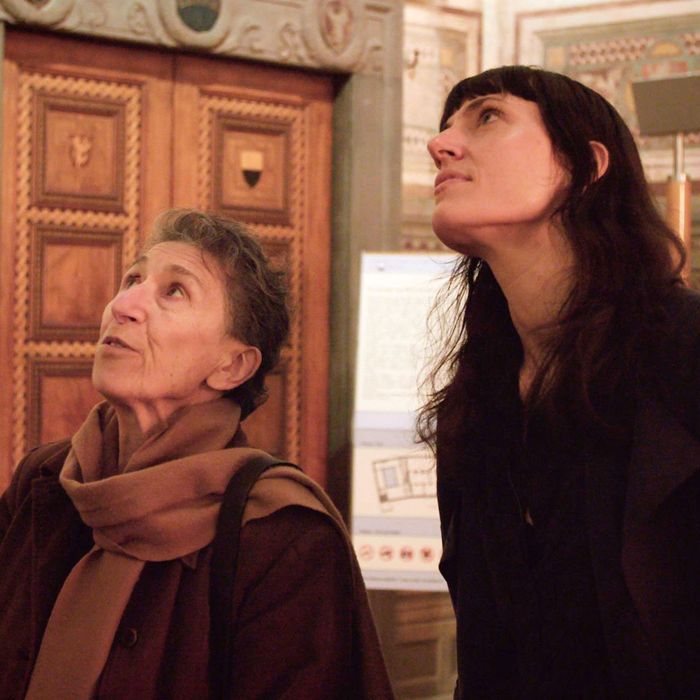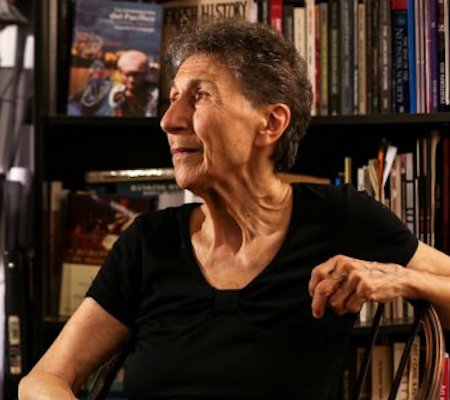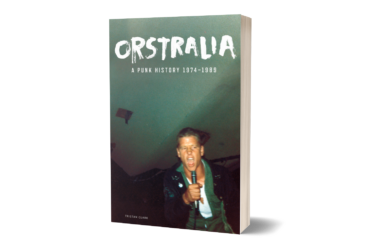
By Amanda Arnold
The Cut
January 18th, 2019
When filmmaker and activist Astra Taylor started digging into the past and current state of democracy in 2011, she quickly noticed a trend: That not only were women excluded from the discourse, but that their role in the expansion of democracy was often omitted from history. While she acknowledges that some female political theorists have, certainly, conducted nuanced research into democracy-adjacent topics, she writes in Bookforumthat “when it came to sweeping treatises aimed at a popular audience, half of humanity seemed to disappear.” Women being written out of history is no new custom, but her observation begs another question: What would a woman’s analysis of the current state of our political system look like?
The answer is What Is Democracy?, a documentary directed by Taylor that is, despite just one mention of the word at the very end of the documentary, inarguably feminist. While Taylor has been interrogating political and economic structures and norms for much of her life — she is the founder of the Debt Collective, a union for debtors, and has directed the documentaries Zizek! and Examined Life — she didn’t want the film to have an authoritative voice. Instead, Taylor travels around the world in the film, asking everyone from activist Angela Davis to public school children about how much faith they have in democracy. And though Taylor’s socialist-feminist politics clearly shape the film, it’s the perspectives of these people — the women, the people of color, the working class — that Taylor wants to uplift.
Ahead of the documentary’s release on January 16, the Cut spoke to Taylor about participating in a democracy beyond voting, the making of a feminist film, and why we can’t be afraid of taking imaginative leaps.
You start off What Is Democracy? with an insightful line about the government system: “I quickly realized it’s not something that’s ever actualized, but always something that is in motion, a kind of ideal we’re reaching towards, but in practice, everywhere you look, democracy is in trouble.” Can you go into more detail about how you came to this conclusion?
A lot of forces were aligned in my life to make me think about this word. In 2011, I got swept up in the energy around Occupy Wall Street, and that set me on the path to co-found an organization called the Debt Collective. So of course, one of the classic chants is “this is what democracy looks like.” You’d hear that during Occupy, and people had very strong feelings about direct democracy and assembly. And yet, there was a lot of dysfunction, so I think I began to reflect on the word and the fact that we had a pretty strong and I think accurate critique of why America isn’t a democracy, but we weren’t exactly sure what we wanted in its place or how to actualize it.
You feature the voices of so many brilliant women, from school girls to activist-scholar Silvia Federici to Syrian migrants — peoples’ whose voices are often left out of the mainstream discourse around democracy. Would you say that marginalized people have better insight into democracy?
There is a strong emphasis on marginalized people throughout the film because I really believe that. What democracy is, is radical ideas moving from the margins to the mainstream, and so often, that’s driven by people who are actually excluded from the demos, and are fighting to be included or to make the system more just. This is the history of democracy: Our political system wants to take credits for the progress that’s been made, but it’s always outsiders who do it. W.E.B. du Bois, who gets referenced by Angela Davis in the film, has this great phrase about “excluded wisdom.” He basically says, democracy needs this excluded wisdom, and mentions women and poor people and black people and children. And I think the film features that excluded wisdom and challenged the idea of who’s a philosopher, and who actually sees how the system works.
Was it your intention to create a feminist film? Because without being advertised as so, the film felt feminist to me.
There’s not an analysis of patriarchy in the film or an explicit discussion of misogyny; it’s not like this is a woman’s film, or I’m talking about women facing workplace discrimination or body image or underrepresentation. It’s feminist in a different way. I don’t know anything about film theory, but I know about the female gaze, and this is more than just than the female gaze: This is the feminist edit, the feminist analysis, the feminist approach. The film doesn’t tell you how to think — it gives space to show how people think. Also, it’s just full of women, and if you look at the crew list, it was made by a really diverse group of women. It’s not until very end of the film that Silvia Federici finally says the F-word, and in case you were clueless, you’re like, “oh wait, this film was really feminist.” I can love Karl Marx and I can appreciate Rousseau and I can engage with Plato, but I can also perceive the brilliance of a teenage girl who’s an activist.
One conclusive statement about the future of democracy comes from Federici, who contends that “in order to have full democracy, you have to democratize the sphere of reproductive relation,” which is an argument she makes in Revolution at Point Zero, Wages for Housework, etc.
Silvia’s analysis is so great, it’s almost easy to miss how brilliant it is. There’s the world of production and waged work, and then there’s this whole assembly line underneath it, which is all the work capitalism doesn’t want to pay for, but that is all the work of actually creating and caring for human beings. It’s wild to me that she and others had to fight for that analysis, and how they had to demand that work be recognized. And still, work around reproduction is not valued or remunerated or revered.
As you write in Bookforum, the majority of the modern-day writers and historians who have tasked themselves with forming a definition of democracy have been, unsurprisingly, white men. Furthermore, women are excluded from the history of democracy. What are the consequences of this?
In a part of the interview that didn’t make it into the film, Silvia Federici says, “there’s this lie that democracy is a male business.” The people who write the history, the people who are featured in history books — it’s presented as this male thing, and then there are simply mentions of women when they get the right to vote and whatnot. I understand the hope that a politician will come in and heal a country, and I think electoral politics are important, but they can’t be the horizon.
It’s not just a writing of, it’s a writing out. There are so many brilliant women in history who could be referenced — I didn’t have any trouble finding lots of them! At this point, it’s not just an omission — it’s something else. I think women are not given the same grand overarching authority that men are given or granted authority to. It’s not the say that this is a topic in which women have not engaged, but that when you move toward big tomes, it becomes a white male field. We lose so much because marginalized communities’ perspectives are not included in those accounts; there’s an experiental factor that isn’t there. So the film is also a sort of rebuttal to that standard narrative of democracy as a male business. I can love Karl Marx and I can appreciate Rousseau and I can engage with Plato, but I can also perceive the brilliance of a teenage girl who’s an activist or recognize that it’s actually women who were the innovators of the concept of freedom — who of course don’t get credit for it. You can go beyond the canon.
In America, when people think of participating in democracy, they most often think of voting. Therefore, I liked how What Is Democracy really challenged and portrayed the limits of electoralism. What in your opinion are other ways for people to participate?
I understand the hope that a politician will come in and heal a country, and I think electoral politics are important, but they can’t be the horizon. The idea that we equate democracy with elections — like, that’s the entirety of democracy? It reflects how shallow our thinking is.
People doing things collectively is the only way that democracy has advanced. Again, capitalism loves to take credit for those advances, as though people didn’t have to fight for their fucking lives to outlaw child labor — relatively recently! People have to figure out how to collectively organize themselves so they can leverage power. We need to strengthen labor and other forms of economic-justice organizing. And while I don’t know if we can really reform democracy without our entire society, I wanted the film to convey that sense that there can be imaginative leaps and breakthroughs — part of what we’re missing is the willingness to make leaps.
Buy Witches, Witch-Hunting, and Women
Buy Re-enchanting the World: Feminism and the Politics of the Commons
Buy Revolution at Point Zero: Housework, Reproduction, and Feminist Struggle






